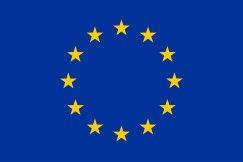Legislation
27 March 2025
Regulation on Renewable Energy Financing mechanism
Legislation
27 March 2025
1. Healthy, balanced and sustainable diets for all European consumers
2. Prevention and reduction of food loss and waste
3. A climate - neutral food chain in Europe by 2050
+4 more
Login / create an account to be able to react
-
9

The EU renewable energy financing mechanism, established by Regulation (EU) 2020/1294, aims to promote the uptake of renewable energy across EU countries. It connects contributing countries, who provide funding, with hosting countries, where new renewable projects are implemented.
Funding is allocated via competitive tenders for grants, with private sector involvement possible. Participating countries share renewable energy production statistics for national targets.
Editorial team
European Commission - DG ENER
Topics
EU-27
EU Institutions
-
CoC aspirational objectives
-
-
1. Healthy, balanced and sustainable diets for all European consumers
-
2. Prevention and reduction of food loss and waste
-
3. A climate - neutral food chain in Europe by 2050
-
4. An optimised circular and resource-efficient food chain in Europe
-
5. Sustained, inclusive and sustainable economic growth, employment and decent work for all
-
6. Sustainable value creation in the European food supply chain through partnership
-
7. Sustainable sourcing in food supply chains
-
Share
To support EU countries in achieving their renewable energy ambition and encourage a greater uptake of renewable energy sources across the EU, Regulation (EU) 2020/1294 establishes the EU renewable energy financing mechanism. Its main objective is to enable EU countries to work more closely together on the uptake and promotion of renewable energy, making it easier to achieve both EU and national targets.
The mechanism links countries that voluntarily pay into the mechanism (contributing countries) with countries that agree to have new projects built on their territory (hosting countries).
The advantages for contributing countries include:
- financing renewable energy projects where the local geography makes them more cost-effective than they would be at home
- accessing renewable energy production that is absent or scarce on their own territory - land-locked countries, for example, can benefit from offshore wind projects
The advantages for host countries include:
- investment in local renewable energy projects with no burden on the national budget
- local employment, lower greenhouse gas emissions, improved air quality, modernisation of the energy system and reduced dependency on imports
The mechanism allocates funding to new renewable projects through competitive tenders for grants. Tenders are designed by the Commission, specifying, for instance:
call’s objectives,
form of grants (investment or operating support) and award criteria,
ceiling price of proposals,
eligible technologies.
The private sector may offer finance, with the option of indicating the project, technology or end-use it would like to support.
Participating countries share the statistical benefits of the renewable energy produced towards their national targets.
Further information:
Related regulations:
Commission Implementing Regulation (EU) 2020/1294 on the Union renewable energy financing mechanism
Comments (0)
See also
Country of Origin Regulation
- Categories
- 2. Prevention and reduction of food loss and waste 3. A climate - neutral food chain in Europe by 2050 4. An optimised circular and resource-efficient food chain in Europe +3 more
Official Controls Regulation
- Categories
- 2. Prevention and reduction of food loss and waste 3. A climate - neutral food chain in Europe by 2050 4. An optimised circular and resource-efficient food chain in Europe +3 more
Food Contact Materials
- Categories
- 2. Prevention and reduction of food loss and waste 3. A climate - neutral food chain in Europe by 2050 4. An optimised circular and resource-efficient food chain in Europe +3 more




